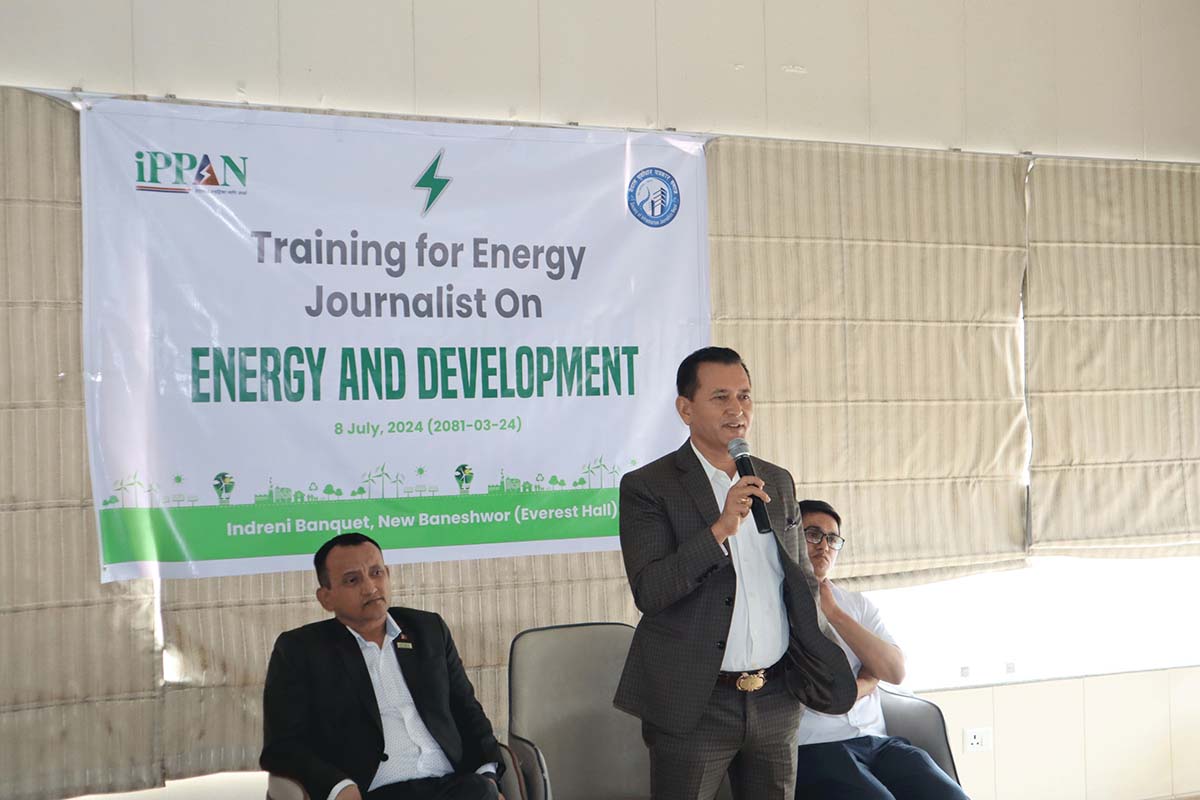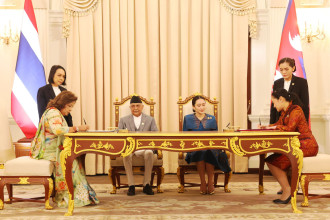
KATHMANDU: Stakeholders have raised concerns about national hydropower projects facing difficulties due to banks in the country investing in foreign-financed hydropower projects.
Addressing a programme titled 'Training for Energy Journalist on Energy and Development' jointly organised by Independent Power Producers' Association, Nepal (IPPAN) and the Society of Infrastructure Journalists - Nepal (SIJ) in Kathmandu, on Monday, IPPAN President Ganesh Karki emphasised the need for a strategic approach.
Karki pointed out that banks in Nepal have invested in foreign hydropower projects, affecting the availability of loans for domestic private sector projects. He advocated for foreign-invested projects to secure capital from abroad. "While banks do invest in energy sector projects within certain limits, directing investment toward foreign projects can hinder local initiatives," said Karki.
Nepal Electricity Authority (NEA) Director Kedar Raj Silwal stressed the importance of not only constructing hydropower projects but also developing transmission lines. Currently, a transmission line with a capacity of 12,446 megavolt amperes (MVA) has been completed, and plans are underway to construct a 35,675 MVA capacity line by 2030.
IPPAN Deputy General Secretary Prakash Chandra Dulal highlighted constitutional ambiguities regarding the jurisdiction of hydropower projects. He also expressed reservations about the proposed Electricity Bill, which he believed lacked sufficient provisions to support private sector interests and required amendments.
Dulal criticised the draft provision exempting government projects from competition, leaving only private investment projects to compete. He further questioned the government's policy of increasing electricity costs instead of promoting affordability and job creation.
Engineer Mani Raj Dahal delved into the prospects, costs, and technical challenges of hydropower projects in Nepal. He also explored the feasibility of hydroelectricity projects within Nepal's unique geographical context.
IPPAN Executive Committee Member Suman Joshi highlighted the ambitious government target of producing 28,000 MW of electricity. To achieve this, an investment exceeding Rs 6 trillion is necessary. Currently, banks and financial institutions (BFIs) have invested Rs 300 billion in the energy sector, representing only 7.1% of the total loan portfolio. Joshi emphasised the need to boost investment and suggested that domestic banks refrain from investing in foreign projects if the private sector actively participates in the energy sector.
IPPAN CEO Bhim Gautam provided insights to journalists on the technical and theoretical considerations essential for accurate reporting on energy-related matters.




-1743655694.jpeg)

